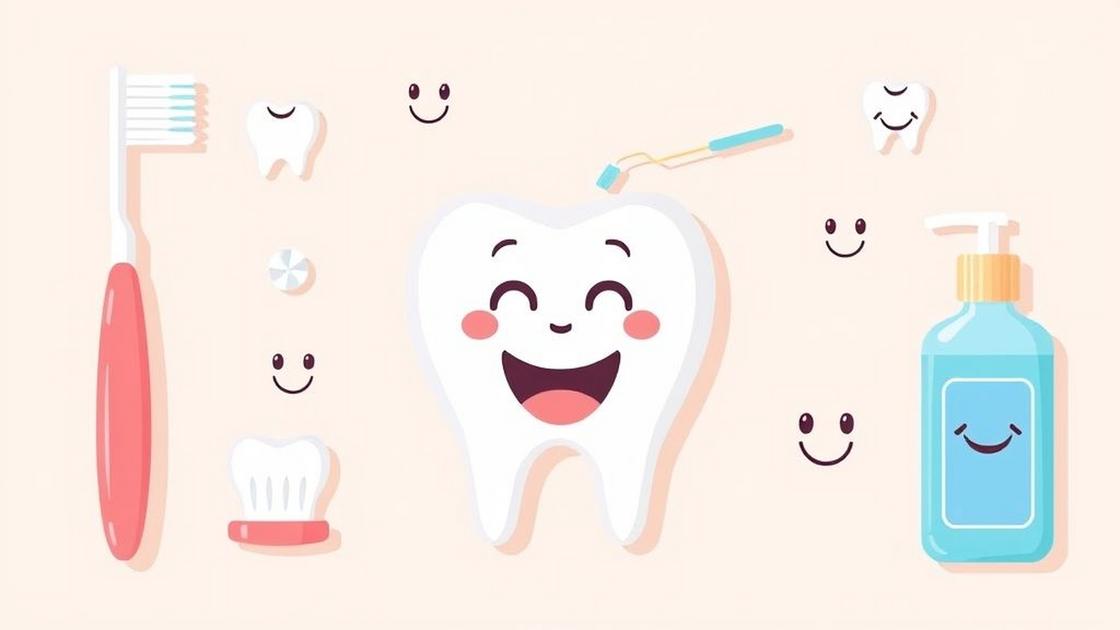As women over 40, we often face unique challenges, including oral health issues that can dampen our confidence. Have you ever noticed how your dental health changes as you age? It’s common to experience dry mouth, increased sensitivity, and even gum issues. These concerns can cause anxiety and frustration, especially when we cherish every moment of our vibrant lives. In this article, we will explore the best vitamins for women’s oral health after 40, focusing on how simple nutritional adjustments can make a meaningful difference.
Understanding Oral Health Changes After 40
As women cross the milestone of 40, their bodies undergo several changes, and oral health is no exception. You might notice shifts in your dental environment—perhaps you’re experiencing more sensitivity, or your gums may feel different than they used to. These changes can be due to hormonal fluctuations, dry mouth, or lifestyle adjustments. It’s a common struggle, and you’re not alone.
At this stage in life, your oral health is more closely linked to overall health than ever before. A decline in estrogen levels can lead to bone density loss, including the jawbone, which might escalate oral health issues. Understanding these changes is the first step towards maintaining a healthy smile.
Why Vitamins Matter for Your Teeth and Gums
Vitamins are not just boost for your physical health but play a critical role in sustaining oral health, especially as you age. They help your body fight inflammation, repair tissues, and combat bacteria in the mouth. This is particularly important for women who may experience gum issues after 40.
Incorporating the right vitamins into your routine can pave the way for healthier teeth and gums, allowing you to enjoy many more smiles without the worry of dental issues. These essential nutrients support not only your oral cavity but also your overall well-being.
Vitamin D: The Unsung Hero of Dental Health
Vitamin D often takes a back seat when we think about health, but this vitamin is vital for oral wellness. It helps your body absorb calcium, promoting stronger teeth and bones. Furthermore, it modulates immune responses, which can reduce the risk of gum disease.
Sourcing vitamin D through sunlight is great, but many women over 40 may not get enough. This is where dietary sources or supplements come in. Just think of all the ways vitamin D assists you in maintaining your smile with confidence!
Calcium’s Role in Strengthening Your Smile
Calcium is another powerhouse that is critical for oral health. As your body starts absorbing less calcium with age, your bones—and your teeth—can weaken. Women over 40 need enough calcium to maintain the density of their teeth and jawbone.
You can find calcium in dairy products, leafy greens, nuts, and fortified foods. Ensuring that you get enough calcium is essential to keep your smile bright and strong. Who doesn’t want a dependable smile to showcase their inner joy?
Omega-3 Fatty Acids for Inflammation and Gum Health
We often hear about the incredible benefits of omega-3 fatty acids for heart health, but did you know they are equally beneficial for your gums? These healthy fats possess anti-inflammatory properties that can help prevent gum disease and promote overall oral health.
Fish like salmon and sardines are great sources of omega-3s. You can also consider flaxseeds or walnuts if you’re looking for plant-based options. Adding these to your diet can mean healthier gums and a more vibrant smile.
Vitamin C: A Key Player in Gum Care
Vitamin C is critical when it comes to gum health. It provides antioxidants that protect your mouth from damage and plays a key role in collagen production, which helps keep your gums strong. If you’re noticing bleeding gums or increased sensitivity, it may be time to check your vitamin C levels.
You can find vitamin C in citrus fruits, strawberries, bell peppers, and broccoli. Making sure you’re getting enough can be a simple yet impactful step towards ensuring those lovely gums stay as healthy as ever.
B Vitamins and Their Impact on Oral Health
Not only do B vitamins support your overall health, but they also have a positive impact on your oral cavity. They help reduce inflammation and play a part in maintaining healthy tissue in your mouth. Deficiencies in B vitamins can lead to issues such as inflammation and oral ulcers, which are something no one wants to deal with.
Foods like whole grains, eggs, and meat are excellent sources of B vitamins. Incorporating these foods can help serve your body better, and trust us, your mouth will thank you!
Antioxidants: Protecting Your Mouth from Damage
Antioxidants are crucial in the fight against free radicals that cause damage at a cellular level. For women post-40, ensuring a diet rich in antioxidants can help maintain oral health by protecting the soft tissues in your mouth from oxidative stress.
Berries, nuts, green tea, and dark chocolate are all rich in antioxidants. Indulging in these treats means you can enjoy a flavorful, health-conscious diet while supporting your oral and overall health.
How Lifestyle Choices Affect Vitamin Absorption
Your lifestyle plays a significant role in how well your body absorbs vitamins essential for oral health. Factors like smoking, alcohol consumption, and even certain medications can hinder your body’s ability to absorb these nutrients effectively.
For example, smoking can drastically reduce blood flow to your gums, making them more vulnerable to disease. It’s vital to be aware of how your habits may affect your vitamin levels and, consequently, your dental health.
Simple Steps to Better Oral Health After 40
Taking charge of your oral health doesn’t have to be overwhelming. Here are a few simple steps to help you achieve and maintain a healthy smile:
- Eat a Balanced Diet: Focus on incorporating vitamins D, C, calcium, omega-3s, and B vitamins into your meals.
- Stay Hydrated: Hydration is key for saliva production, which helps keep your mouth healthy.
- Practice Good Oral Hygiene: Regular brushing and flossing are essential. Don’t forget dental check-ups!
- Limit Sugar Intake: Reducing sugar can help lower your risk of cavities and gum disease.
- Avoid Tobacco: Quitting smoking can greatly improve both your oral and overall health.
Despite these challenges, you have the power to reclaim your healthy smile. Remember, it’s all about making simple yet powerful choices every day. Just like many women who have embarked on this journey, you, too, can combat these symptoms and enjoy a vibrant, confident smile.






